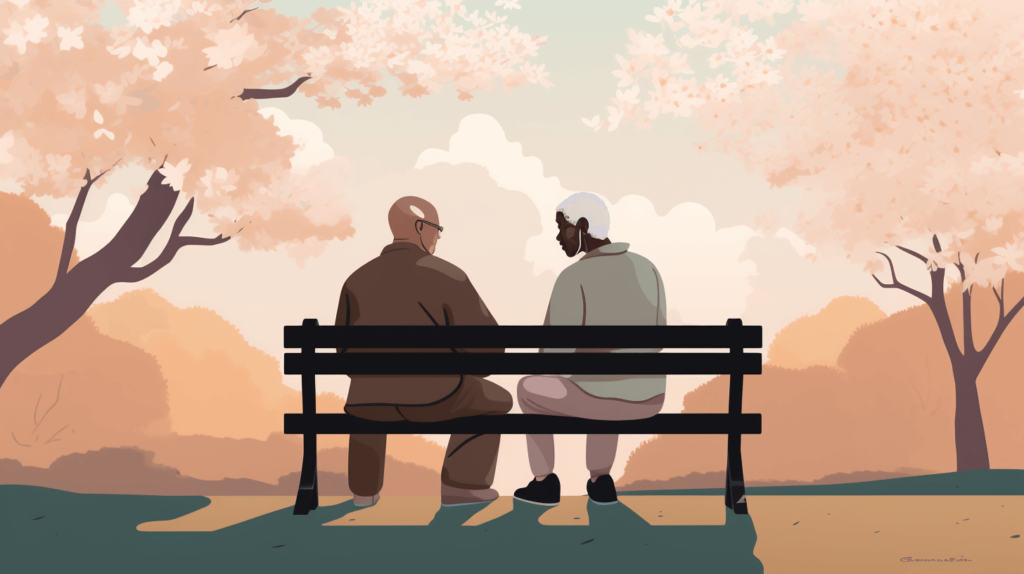Truth & Goodness
Sickles, Hammers, and Dollars: The Capitalist Miracle of “Red” Vietnam
01 March 2026

What drives our capacity to treat others with kindness and comprehension? In today’s fast-paced and often surface-level world, we are more inclined to judge and categorize than to genuinely understand others. It necessitates setting aside our valuable time, or at the very least slowing down, to genuinely engage with another and understand their situation. Do we have space for such empathy and compassion in our lives?
Both empathy and compassion are facets of human emotional intelligence (EQ). This intelligence pertains to the ability to recognize and understand our own and others’ emotions. It also guides how we cope with and manage these emotions. While EQ may sometimes align with traditional intelligence (from Latin, ‘intelligentia’), which is rooted in rational understanding and perception, they are not always paired. Many individuals boast a high intelligence quotient (IQ), signifying strong analytical and synthesizing abilities. Yet, this does not necessarily correlate with their capacity to empathize or discern others’ emotional states.
In today’s context, how should we interpret the roles of empathy and compassion, especially given our earlier definitions? Edith Stein (1891–1942), a key figure in the European phenomenological school, offers significant insights from the 20th century. This German philosopher highlighted the central role empathy plays in understanding another individual. She believed empathy, rooted in our emotional response and tied intrinsically to the human body, paves the way for grasping both our personal and others’ experiences of the world. We each have a body that lets us feel emotions like pain, joy, and suffering. Consequently, we understand someone else’s body by drawing an analogy, suggesting that their feelings might mirror ours.
Yet this initial understanding of our physicality in the empathy theory is just the beginning, the initial phase towards understanding a deeper co-feeling with the other: empathetic understanding, or compassion. Our body guides us beyond simple analogies when we comfort someone experiencing illness or the loss of a loved one. Empathy, in these moments, evolves into compassion. We do not just witness their despair over inevitable death; we feel emotions paralleling theirs. We are not mere spectators, their pain resonates within us. This shared emotional experience births compassion, as it is impossible to remain unaffected by someone close who is overwhelmed by their emotions. We resonate deeply with their pain. Often, this state propels us to act, aiming to provide solace and lessen their emotional distress.

In Stein’s perspective, empathy allows us to participate in another person’s emotional life and, in some way, to share in their fate and experiences. Immanuel Kant (1724–1804), the German philosopher, believed that while empathy is not necessarily a human duty, it “compels us to seek out places where the disadvantaged are, rather than avoid them. It discourages us from turning our gaze away from the unsettling sights of hospitals and prisons. For nature endowed us with the ability to feel compassion to prompt actions when duty alone seems insufficient.” For Kant, compassion’s root is our shared humanity. By engaging in diverse human relationships, we can practice our most profound human trait: the ability to do good. Sometimes, a minor gesture suffices; at other times, more significant sacrifices are needed for another’s benefit.
Polish historian and journalist Marian Turski (born 1926) formulated a potential moral guideline for the 21st century: “Do not be indifferent.” In our fast-paced lives, with set routines and plans, we often overlook the importance of genuinely connecting with others. Such a connection should be about shared experiences, not just mere coexistence. Displaying empathy and compassion often demands sacrifices. However, it is this capacity for sacrifice that truly defines our humanity, highlighting our most commendable qualities. Albert Schweitzer (1875–1965) once said, “True humanity is defined by compassion for all beings,” echoing Kant’s earlier insights.

It is crucial to understand that each act of compassion has its limits. We can never fully understand the emotions and feelings of others. We cannot walk in another’s shoes to grasp their unique perspective. Each of us is distinct, and this distance between us remains unbridged. Yet, simply being present during someone’s challenging times, whether through words or mere silence, can carry profound significance. At times, words are unnecessary. Just listening or sitting in silence can offer meaningful support and demonstrate our empathy.
Józef Tischner (1931–2000), a Polish philosopher of dialogue and encounter, aptly described this attitude in the following words: “While compassion motivates us to aid our neighbors, it doesn’t oblige us to bear their full sorrows. It indicates an emotional connection but does not denote sharing in carrying the cross that’s the source of the tragedy… Compassion combines an element of sympathy but exceeds it in the depth of engagement in another’s fate.” Today, it remains important to remember that our most valuable gift to another is our very self: our genuine engagement, concern, and empathy. These qualities are invaluable.
Truth & Goodness
01 March 2026



Zmień tryb na ciemny